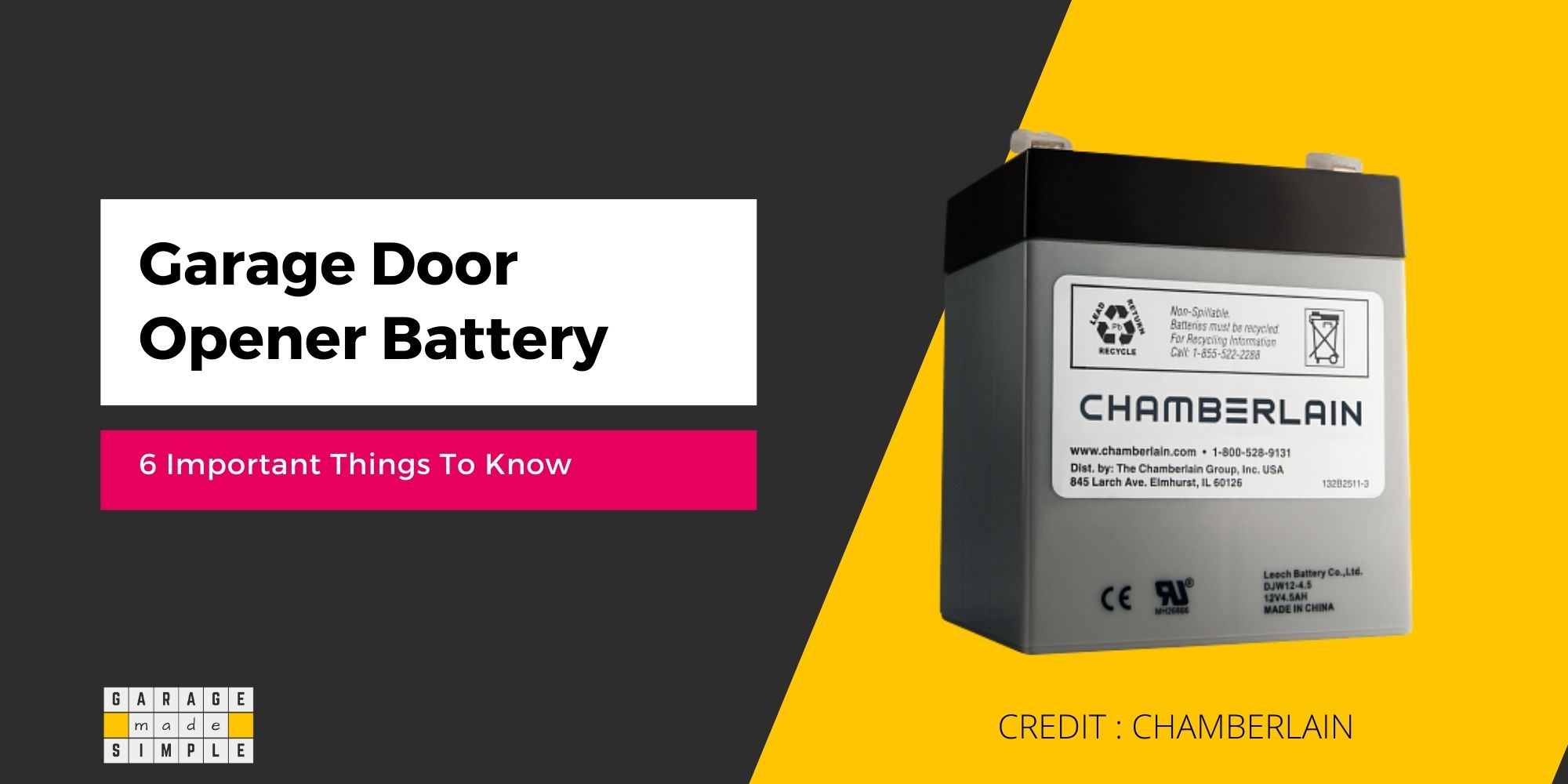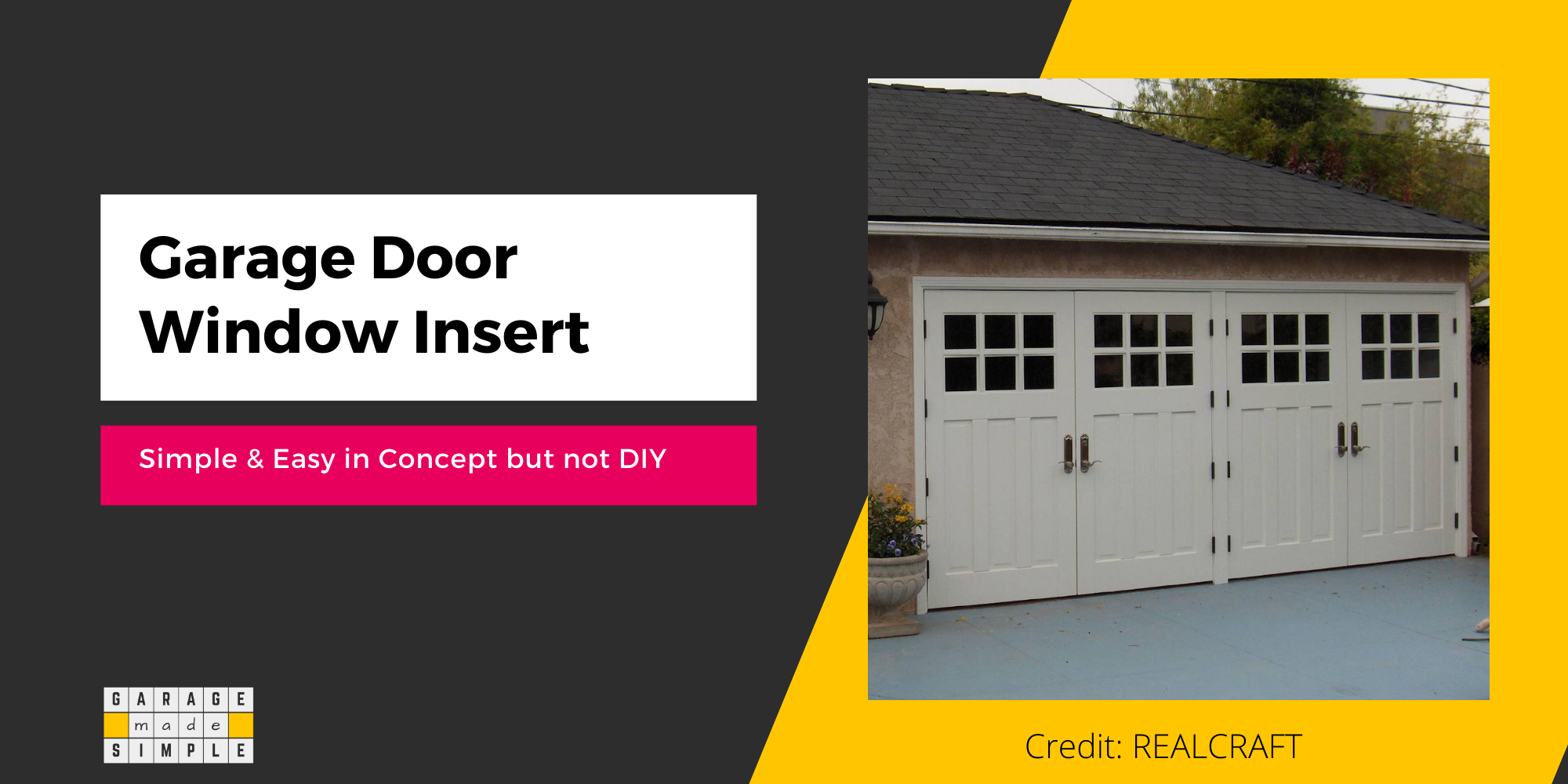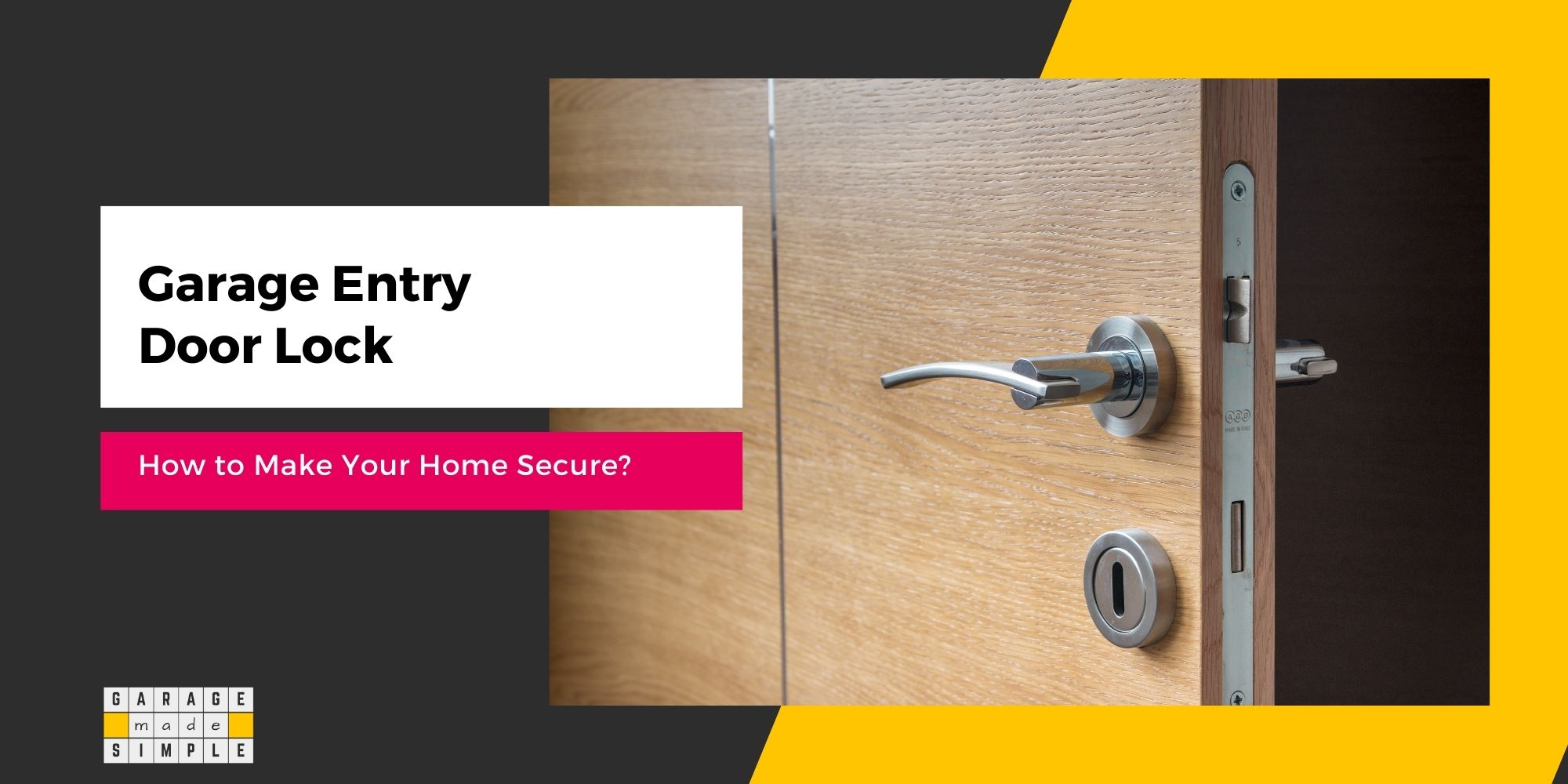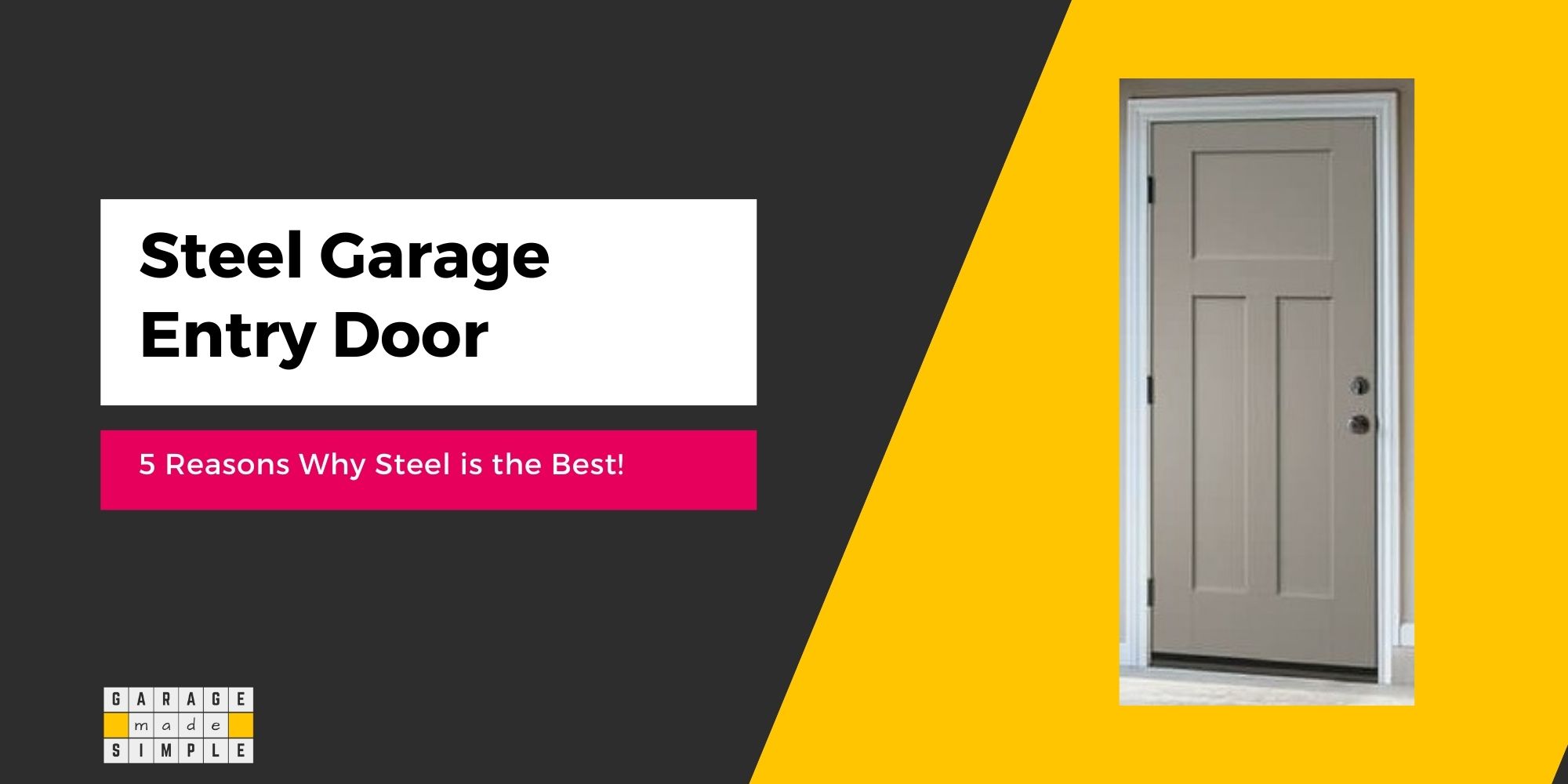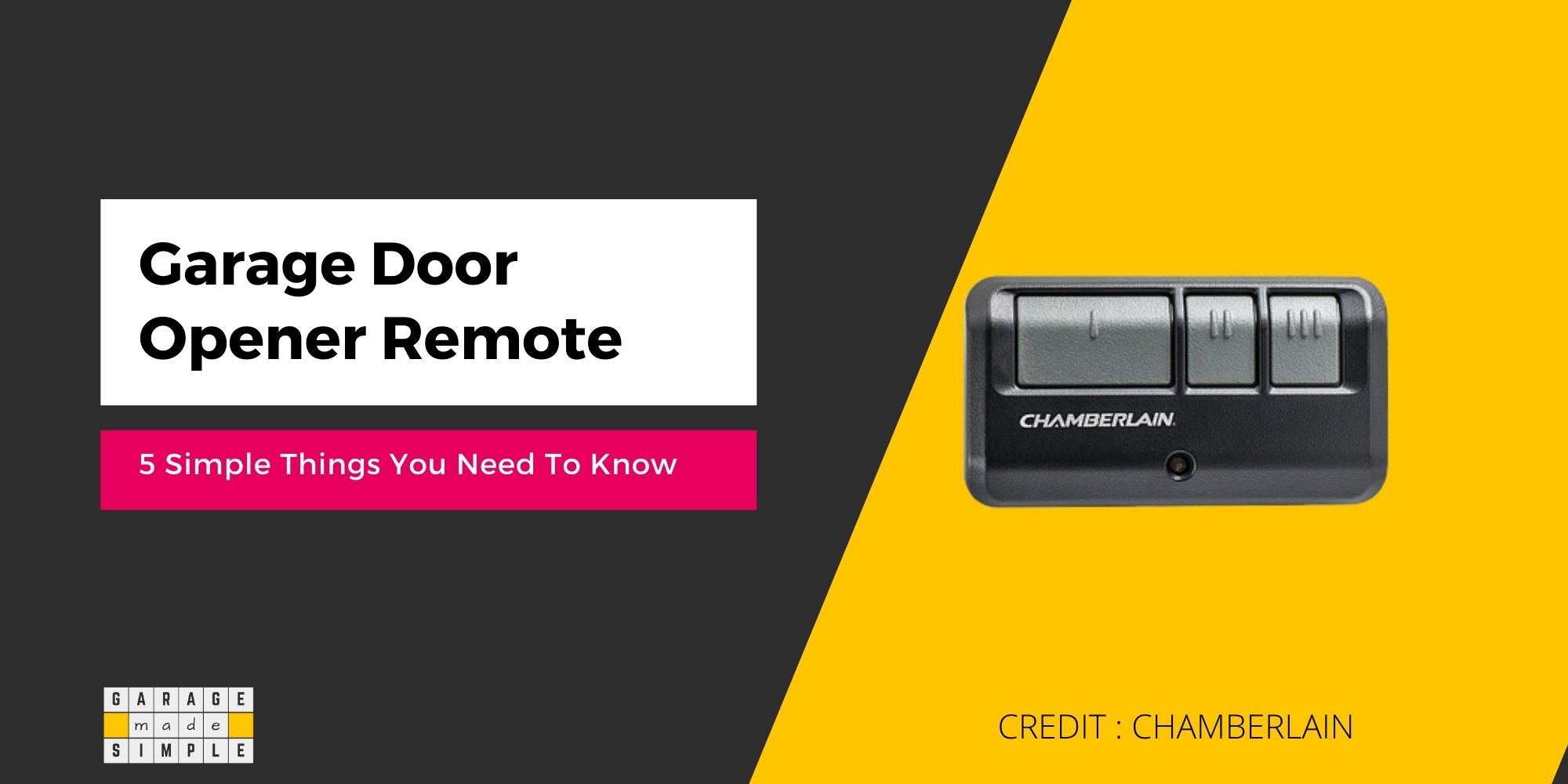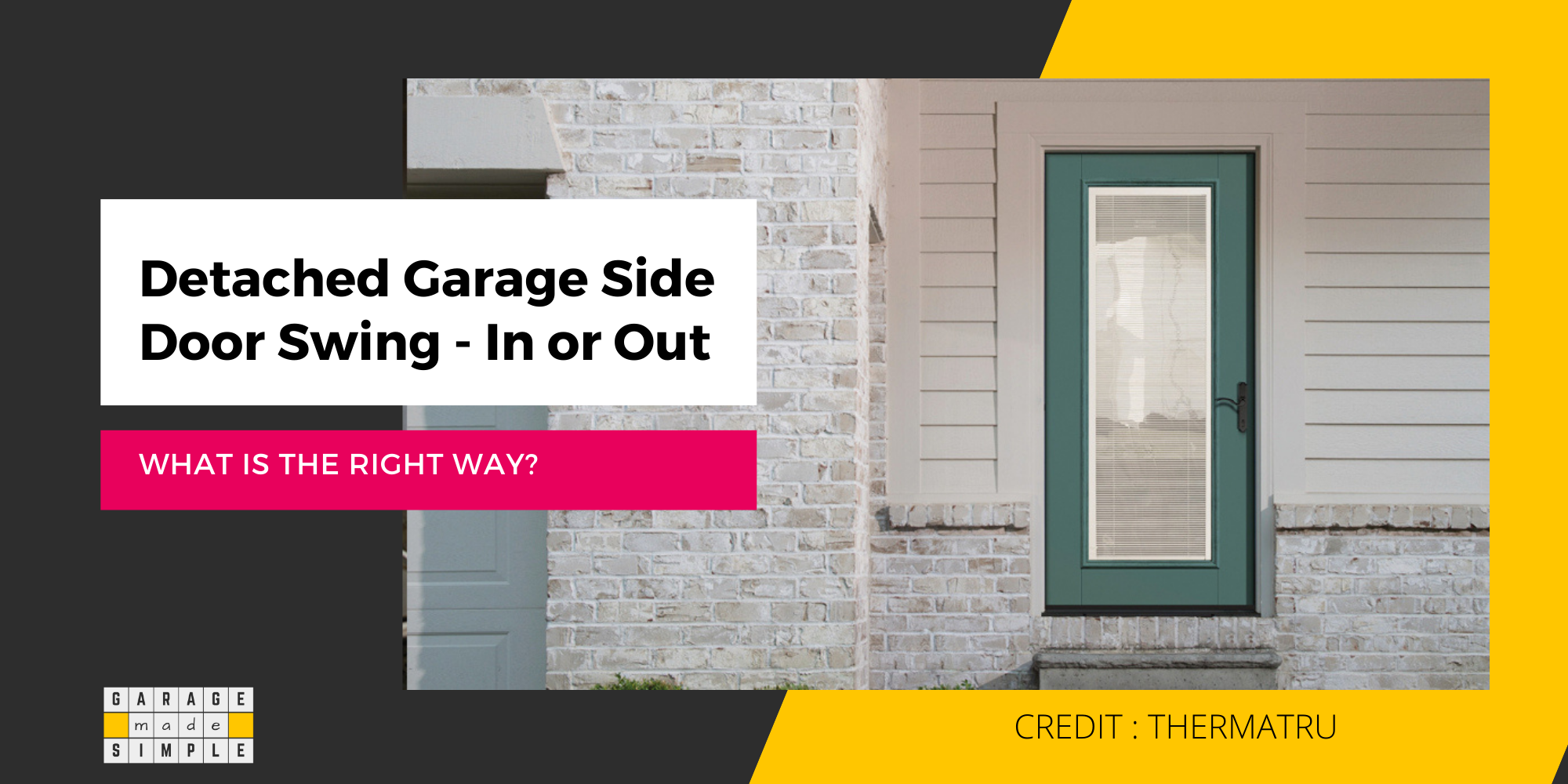Fiberglass vs Steel Garage Doors (7 Unique Reasons Why Steel is Better!)
As an Amazon Associate, I earn from qualifying purchases.
Fiberglass vs Steel Garage Doors
Steel is the most popular material used in making Garage Doors followed by Aluminum. However, Wood, Fiberglass and Vinyl are also used to make Garage Doors. When buying a new garage door, you may be faced with the dilemma of choosing between Fiberglass vs Steel Garage Doors.
So which is better and why?
There are 7 unique reasons why a steel garage door is better than a fiberglass garage door. These are:
- #1 Reason: Steel is Stronger
- #2 Reason: Steel is More Durable
- #3 Reason: Steel Withstands Extreme Climate Better
- #4 Reason: Steel Garage Doors are Available Everywhere
- #5 Reason: Steel Garage Doors have Better Insulation Options
- #6 Reason: Steel Garage Doors come in a Wider Price Range
- #7 Reason: Steel Garage Doors can have “The Wood Look”
Steel Garage Doors are very sturdy and durable. They can be used in every climatic condition as they can be configured for high velocity wind zones or extremely cold areas. They are immensely popular, easily available and easy on the pocket.
Fiberglass Garage Doors have Steel at their core. This Steel core is sealed in Fiberglass to improve aesthetics and increase durability of the Fiberglass Garage Door. They are best as alternatives to Wooden Garage Doors in warm & wet climates.
When it comes to Fiberglass vs Steel Garage Doors, there are 6 reasons why Steel Garage Doors are Better.
In this post I am going to compare Fiberglass vs Steel Garage Doors, discuss the pros & cons of each material and explain why Steel Garage Doors are Better.
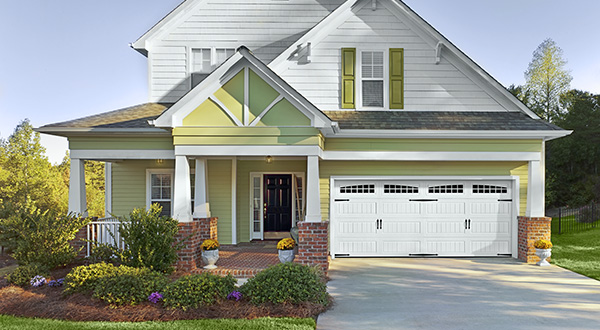
#1 Reason: Steel is Stronger
Steel Strength
Steel is widely used in construction as well as products such as automobiles and appliances mainly because of its structural strength.
Steel is not an element, like say aluminum. Rather, steel is an alloy like brass or bronze. An alloy is made by mixing two or more elements.
Steel Composition
Steel is primarily iron, which is a metallic element, but it is mixed with other elements like carbon, silicon, manganese, nickel, etc. Any number of combinations are possible.
Steel can be designed to have different physical properties depending on which and how much of each of the other elements are added to iron.
Generally speaking, the steel used in making garage doors is 24-gauge steel or heavier. This grade of steel is pretty strong and not likely to warp, deform or bend underweight, force or heat.
Fiberglass Composition
Fiberglass is a glass fiber reinforced polymer. The material can be given different properties based on the density and arrangement of the glass fibers in the material.
Loosely packed glass fibers combined with polyester resin form excellent insulating material for homes, including garages.
In a different composition it can be molded into complex, light, durable and strong objects. It is impact & corrosion resistant. Some common places you can find fiberglass are aircraft, windows, roofing, boats and bathtubs.
Strength to Weight Ratio
The fact is that pound–for–pound, fiberglass is much stronger than steel or aluminum.
The specific strength (aka strength to weight or strength to mass ratio) is a material’s strength (force per unit area at failure) divided by its density. The unit of measurement is kilonewton meters per kilogram (kN m/kg).
The comparison:
| Material | Specific Strength (kN m/kg) |
| Low Carbon Steel (AISI 1010) | 46.4 |
| Stainless Steel (304) | 63.1 |
| Aluminum Alloy (6061-T6) | 115 |
| Aluminum Alloy (7075-T6) | 204 |
| Glass Fiber | 1307 |
Of course the above data has to be taken with a pinch of salt. Pure glass fibers have almost no flexural strength. So fiberglass really is not pure glass fibers; it is glass fiber reinforced polymer.
And even then, when it comes to garage doors, at best fiberglass can be used to seal a steel core. It can not be used just by itself.
Ultimately a steel garage door is stronger than a fiberglass garage door.
#2 Reason: Steel is More Durable
Corrosion Resistance
One of the reasons cited in favor of fiberglass doors is that fiberglass does not rust. This is no doubt true.
However, good quality steel garage doors are always made from galvanized steel. Further the steel also has a corrosion resistant coating.
Galvanizing is a process by which steel is coated with a thin layer of zinc. The zinc coating protects the steel beneath it from rust and makes it corrosion resistant.
Coating steel with paint is another way of giving steel a decorative finish and making it corrosion resistant.
Impact Resistance
Fiberglass has high impact resistance and will not scratch or dent when hit by small sharp stones or other tools. So compared to steel garage doors, fiberglass garage doors are less prone to dents, scratches and deformations.
However, Steel can be made hard & tough to the required level by controlling the percentage of carbon in it. The Steel used in Garage Doors is less likely to warp or bend from weight, force, or heat.
Weather Resistance
Fiberglass Garage Doors have a much lower weather resistance than Steel Garage Doors.
Fiberglass Doors get damaged under high wind conditions and are certainly not recommended for high wind velocity or hurricane prone zones.
Fiberglass also has a tendency to become brittle in cold climates making Fiberglass Garage Doors unsuitable for climatic zones rated 4 or more.
The color of the fiberglass garage door is inherent to the material and is not a coating. Unfortunately, this has poor UV resistance. You will need to apply a UV resistant clear coat quite frequently to maintain the original shine. Otherwise the door will look dull & faded.
These resistant properties make Steel Garage Doors a lot more durable than Fiberglass Garage Doors.
#3 Reason: Steel Withstands Extreme Climate Better
In mild temperate and humid climates Fiberglass Garage Doors perform pretty well. They will not warp or corrode from the high humidity. They do not contract or expand with temperature changes.
But the difference begins to show in climatic zones, where the weather is not mild.
High Velocity Wind Zones
If you live in a high velocity wind or hurricane prone zone, then your garage door must comply with the regulations and standards concerning hurricane resistance.
During high velocity winds & hurricanes the load on the garage door can be very high and the door could get blown away. The damage does not stop there. The wind then has access to the roof structure and can blow away the house roof as well.
Following states are prone to high winds and may require wind rated garage doors.
- Florida
- California
- Kansas
- Missouri
- Nevada
- Utah
Please check the building code in your area before you buy a new garage door.
High-Velocity Hurricane Zone (HVHZ) (Miami – Dade and Broward Counties) have the most stringent Building Codes in this respect.
Tornado Alley
In addition to the high winds from hurricanes many states of the US are also at very high risk of property damage due to frequent tornadoes.
Tornado Alley is commonly used for the corridor-shaped region in the United States Midwest that sees the most tornado activity. While it is not an official designation, states most commonly included are Texas, Oklahoma, Kansas, Nebraska, Missouri, Iowa, and South Dakota. While not geographically part of tornado alley, Florida sees more tornadoes than any other state,
Source: World Population Review
You should be buying Wind Rated & Impact Resistant Garage Doors constructed out of steel, if you live in the Tornado Alley.
Wind Rated Garage Door Design
Wind rated garage doors are designed and built with adequate support structures to resist both positive and negative pressures created by high velocity winds and hurricanes. These include:
- Horizontal steel reinforcement struts for increased support to withstand increased wind pressures and building code requirements.
- Upgraded springs, track, rollers and other hardware components to ensure maximum, long-lasting performance.
Wind-resistant garage doors are usually constructed with at least one layer of steel.
Amarr Hurricane Rated Garage Doors
Consider for example the Hurricane Rated Garage Doors Brochure from Amarr.
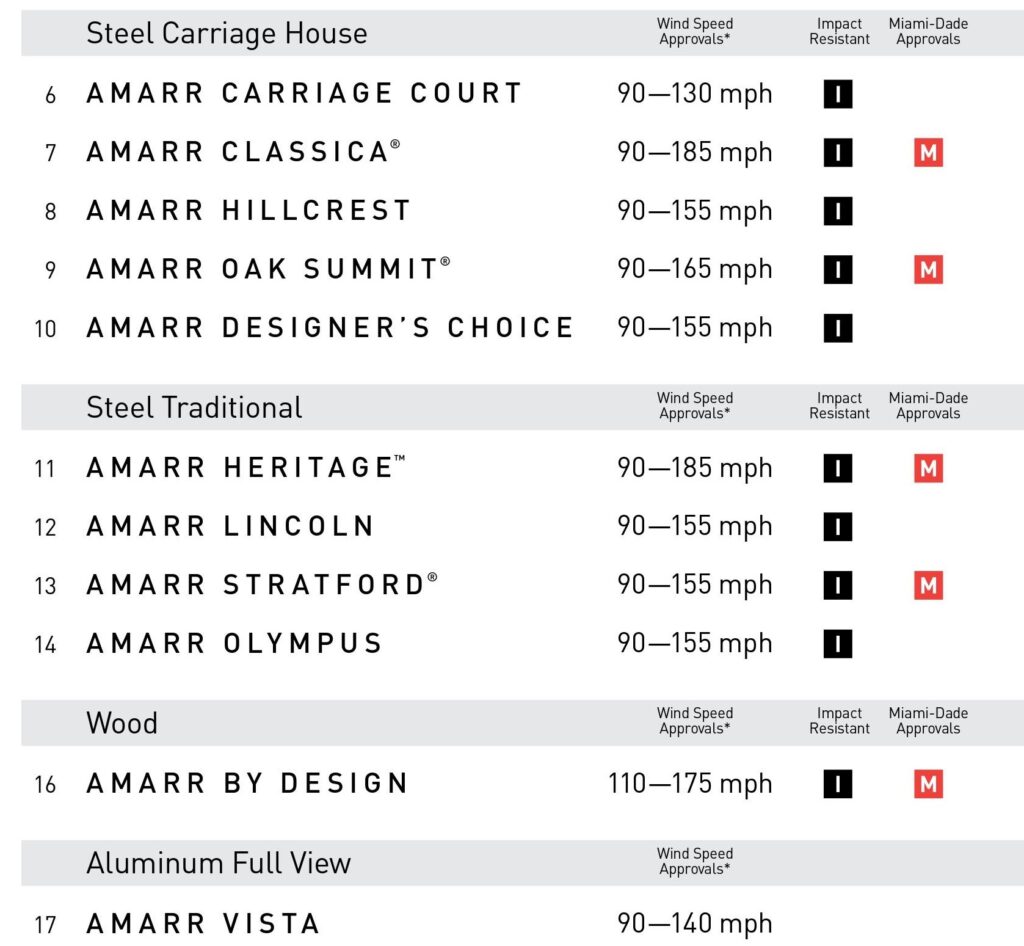
As you will note, 9 out of the 11 models are made of steel. None are made from fiberglass. As a matter of fact, Amarr and several other reputable garage door manufacturers do not have any fiberglass models.
Extreme Cold Winters
Fiberglass turns brittle as temperatures drop. As a result hailstorms can damage fiberglass garage doors.
Steel Garage Doors will be able to withstand the fury of a hailstorm a lot better.
#4 Reason: Steel Garage Doors are Available Everywhere
When it comes to Fiberglass vs Steel Garage Doors, fiberglass is really hard to find. Most large manufacturers such as Clopay, Amarr etc. do not even make them. Surely this is because fiberglass garage doors are less popular and can be used only in limited climatic zones.
Steel garage doors on the other hand are immensely popular and every garage door manufacturer makes them (unless they are specialist manufacturers). As a result a steel garage door will be widely available in any part of the country.
You have an unlimited choice of brands and models to choose from. You can easily find reliable dealers who can sell you the door, do the installation and provide after sales service, pretty close to your home.
#5 Reason: Steel Garage Doors have Better Insulation Options
Both Fiberglass and Steel are good conductors of heat (in other words poor insulators). Without added insulation both would result in uncomfortably cold garages during freezing winters.
Insulation Layers
Typically steel garage doors come in
- One Layer – No Insulation (just one layer of steel)
- Two Layer – With Insulation (Steel on exterior + Polystyrene Insulation + Vinyl on interior)
- Three Layer – With Insulation (Steel on exterior + Polystyrene or Polyurethane Insulation + Steel on interior)
Amarr makes its steel garage doors as one layer, two layer and three layer options. The triple layer option, for example, can offer a range of R-values to choose from.
Insulated Three Layer Steel garage door with an R-value of say 19.40 would be a definite asset in the freezing winters of northern US.
Fiberglass Garage Doors come in insulated versions too, but the options are very limited. For example, Model 9800 Designer Fiberglass Garage Door from Wayne-Dalton has a R-Value of 7.6. That is pretty low and won’t be much use if you see really brutal winters.
So when it comes to Fiberglass vs Steel Garage Doors, a steel garage door is certainly a lot better if you are looking at insulation options.
An additional benefit of insulation is that it makes your garage door sturdier and soundproof too!
#6 Reason: Steel Garage Doors come in a Wider Price Range
When it comes to Fiberglass vs Steel Garage Doors, steel garage doors are likely to be cheaper than fiberglass garage doors at the lower end.
Do keep in mind that the number and range of models available in fiberglass is rather limited.
According to the blog post by nerdwallet, the cost of a two car garage door is:
| Garage Door Material | Price Range |
| Steel | $750 – $3,500 |
| Fiberglass | $1,500 – $2,000 |
| Aluminum | $1,500 – $2,000 |
| Wood | $1,200 – $4,000 |
At the lower end you can get a no-frills steel garage door at a price much lower than an ordinary fiberglass garage door. However, you can also buy fairly expensive, but a lot higher quality, steel garage doors.
#7 Reason: Steel Garage Doors can have “The Wood Look”
If you want a garage door that looks like wood but are not ready to go for a real Wooden Garage Door, then a Fiberglass Garage Door, with a wood finish, is the best alternative.
In the absolute sense, nothing can replace the grandeur of a real Wood Garage Door because it
- Has Exquisite Beauty
- Is Natural & Warm
- Is Ecologically Sustainable
- Has Good Insulating Properties
- Can be Durable (with proper Maintenance)
However, real wood comes with many disadvantages.
It is not
- Budget Friendly (Really Expensive)
- Moisture Resistant (Rotting, Fungus Growth)
- Temperature Fluctuation Resistant (Warping)
- UV Resistant (Color Change)
- Pest Resistant (Holes)
Steel Garage Doors that have a wood finish are available. But a Fiberglass Garage Door best mimics real wood. This is because fiberglass is highly pliable and can be molded to reproduce the grains of real wood in great detail.
Bottom Line
When it comes to Fiberglass vs Steel Garage Doors, Fiberglass Garage Doors have really only one feature where they perform better than Steel.
Their ability to mimic real wood. This makes them a great alternative to Wooden Garage Doors, especially in warm humid climates.
But for most other situations a Steel Garage Door is certainly better than Fiberglass as it has:
- More Strength
- More Durability
- Better for Extreme Climate
- Wider Availability
- Higher Insulation
- Wider Price Range
- The Wood Look
Thank you very much for reading the post. I do hope you found it informative and useful.

